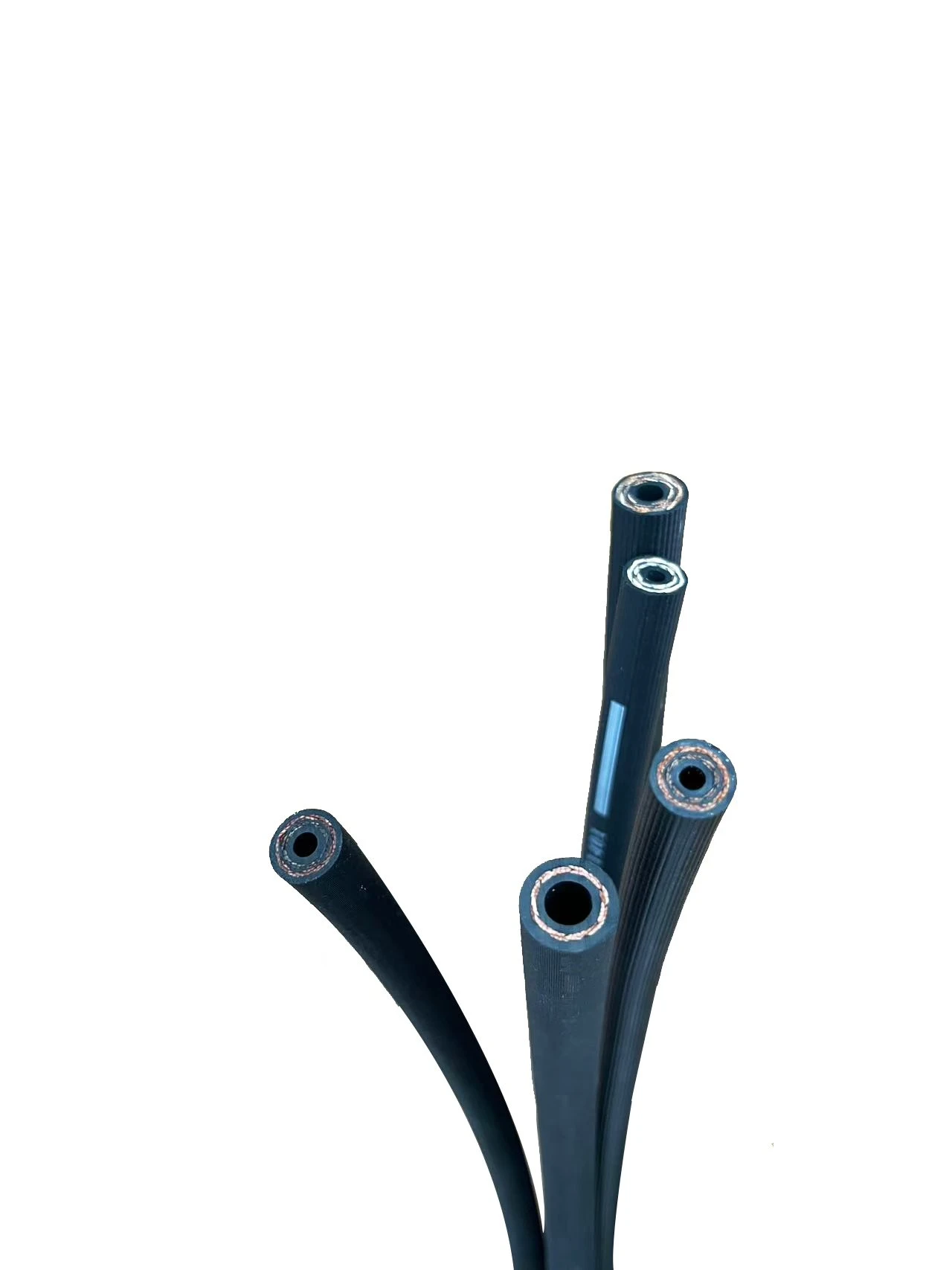ac compressor hose
Dec . 10, 2024 17:58 Back to list
ac compressor hose
Understanding AC Compressor Hoses Importance and Maintenance
The AC compressor hose is a crucial component in the air conditioning system of a vehicle. It plays an essential role in the refrigeration cycle by transporting refrigerant between the compressor and the condenser, and subsequently to the evaporator. Given the importance of maintaining a comfortable temperature within the vehicle, understanding the function and upkeep of the AC compressor hose is paramount.
What is an AC Compressor Hose?
An AC compressor hose is typically made of durable rubber or reinforced materials designed to withstand high pressure and temperature changes. This hose connects the AC compressor to the rest of the air conditioning system and is responsible for carrying refrigerant in both its gaseous and liquid states. The efficiency of the air conditioning system greatly depends on the integrity of these hoses, as any wear or damage can lead to underperformance or system failure.
Signs of AC Compressor Hose Issues
Understanding the signs of a failing AC compressor hose can save you from costly repairs
. Here are some indicators to look for1. Refrigerant Leaks One of the most common issues with AC hoses is leakage. This can result from age, wear, or external damage. Look for any oily residue around the hoses—a telltale sign of refrigerant leakage. 2. Oil Stains In addition to refrigerants, other fluids can leak, often indicating a problem with the hoses. If you notice oil stains near the connections, it might mean there is a problem that needs immediate attention.
3. Poor Air Conditioning Performance If your AC system is not cooling the air effectively or is taking longer than normal to cool down, it might be due to a problem with the compressor hose. Insufficient refrigerant reaching the evaporator will directly affect cooling efficiency.
4. Noise Unusual noises coming from the AC system can indicate a problem. Any rattling or hissing sounds may suggest that the hose is damaged or not functioning correctly.
ac compressor hose

Maintenance of AC Compressor Hoses
Proper maintenance of the AC compressor hose can greatly enhance the longevity and performance of your vehicle's air conditioning system.
1. Regular Inspections Check your AC hoses regularly for any visible signs of wear or damage. Look for cracks, bulges, or any signs of corrosion, particularly at the connection points.
2. Replacement Hoses do not last forever. If you notice severe cracks, leaks, or wear, replacing the hose is often the best course of action. It’s crucial to use high-quality OEM (Original Equipment Manufacturer) parts to ensure compatibility and durability.
3. System Recharge If you suspect that your system is low on refrigerant, it might also be a sign of a failing AC compressor hose. It is advisable to inspect the hose for leaks and recharge the system if necessary.
4. Professional Service If you are unsure about the condition of your AC compressor hose or the overall air conditioning system, it’s prudent to seek help from a certified automotive technician. They can perform a thorough inspection and diagnostics to pinpoint any issues accurately.
Conclusion
In conclusion, the AC compressor hose plays an integral role in the functionality of a vehicle's air conditioning system. Recognizing the signs of wear and failure and performing regular maintenance can save vehicle owners from costly repairs and ensure a comfortable driving experience. By being proactive in understanding and caring for these components, you contribute significantly to your vehicle’s performance and longevity. Whether it's a small inspection or consulting with a professional, taking action early can prevent larger issues down the road, keeping you cool in even the hottest conditions.
